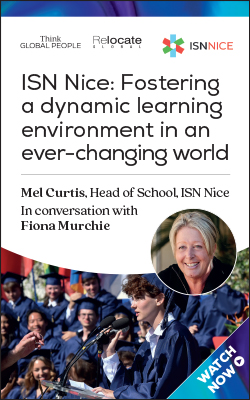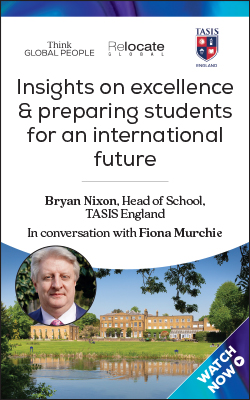The future of jobs for today’s students
With the current situation leaving many uncertain of their future, ACS International School Doha, took a step further by analyzing today’s economic trends to predict the demand of tomorrow’s jobs.

Dr. Robert Harrison
- caring professions
- data and Artificial Intelligence
- engineering and cloud computing
- green professions
- marketing, sales and content
- people and culture
- product development
- medical transcriptionist
- athletic trainers
- exercise physiologists
- data scientist
- Big Data developer
- insights analyst
- site reliability engineer (cloud computing)
- full stack engineer
- Python developer
- landfill system technician
- wind turbine service technician
- sustainability specialists
- human resources partner
- talent acquisition specialist
- HR business partner
- Quality Assurance tester
- Agile coach
- Scrum master
- digital product owner
- social media content producer
- marketing growth hacker
- customer specialist
- chief commercial officer
- creative copywriter

What skills should schools be helping student to develop for full participation in the jobs marketplace being created by the Fourth Industrial Revolution?
Some skills are familiar, having formed the backbone of learning and teaching in schools for many years. Students will always need to read, perceptively, write persuasively, and apply mathematical understanding practically –although now they must do so in digital, technology-rich environments (and with increasing degrees of sophistication). Learning multiple languages is a good idea; so is learning how to manage projects; how lead and care for others; how to be an active, healthy individual.But there may need some new subjects in the curriculum, and some more attention to the development of opportunities for students to engage with real world learning that helps prepare them for the world to come. Computers (or more specifically, computer-human interaction), to no one’s surprise, will be key. But data science, data visualization, data storage technologies, data literacy, and data analytics are brave new disciplines for most secondary schools. Allied health professions will be big. It will be important to inspire children with learning engagements that do shy away from the physical body and its care (even if what they learn is through advanced simulations). The creative arts will be ever-more central, and business/ entrepreneurial / management/ manufacturing career courses may need a refresh (and some long-overdue additional prestige).Education in the future: skills-oriented and non-traditional academic pathways
Education for the future will likely be more skills-oriented, and less concerned with validating content knowledge. It will always be important to know things, but it is increasingly important to harness knowledge to action. Students also need to learn how to do things. People (‘soft’) skills, digital literacy skills, and technical skills will need to frame the scope and sequence of learning at tomorrow’s schools. Tech skills and content production skills will need to develop new baselines, and offer structured learning engagements that bring students into contact with disruptive technologies as they’re emerging.Probably very few teachers are ready to lead this change, so it will be important to soften the edges between school and the world beyond the classroom. We will need powerful partnerships for learning, and innovative structure to scaffold students’ introduction to tomorrow’s occupations. We will need new academic programs that value careers and perhaps other non-traditional academic pathways for outliers and social entrepreneurs who have often languished in the lock-step progressions of learning that most educational institutions have learned to do so well.The emerging labour market offers opportunities galore—ready or not, here it comes.Learn more about the ACS International School Doha
Read more about Education and Schools
Subscribe to Relocate Extra, our monthly newsletter, to get all the latest international assignments and global mobility news.
Relocate’s new Global Mobility Toolkit provides free information, practical advice and support for HR, global mobility managers and global teams operating overseas. Access hundreds of global services and suppliers in our Online Directory
Access hundreds of global services and suppliers in our Online Directory
©2025 Re:locate magazine, published by Profile Locations, Spray Hill, Hastings Road, Lamberhurst, Kent TN3 8JB. All rights reserved. This publication (or any part thereof) may not be reproduced in any form without the prior written permission of Profile Locations. Profile Locations accepts no liability for the accuracy of the contents or any opinions expressed herein.
































